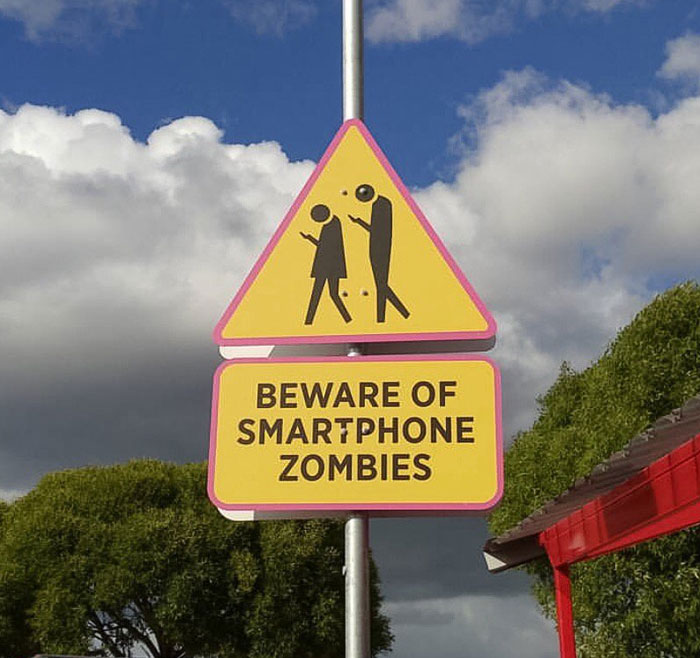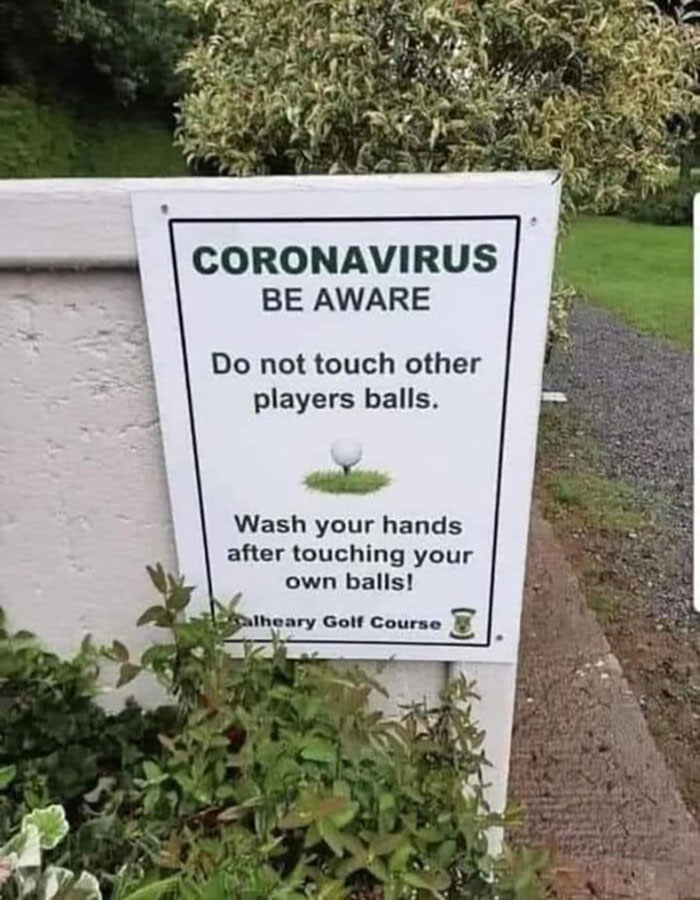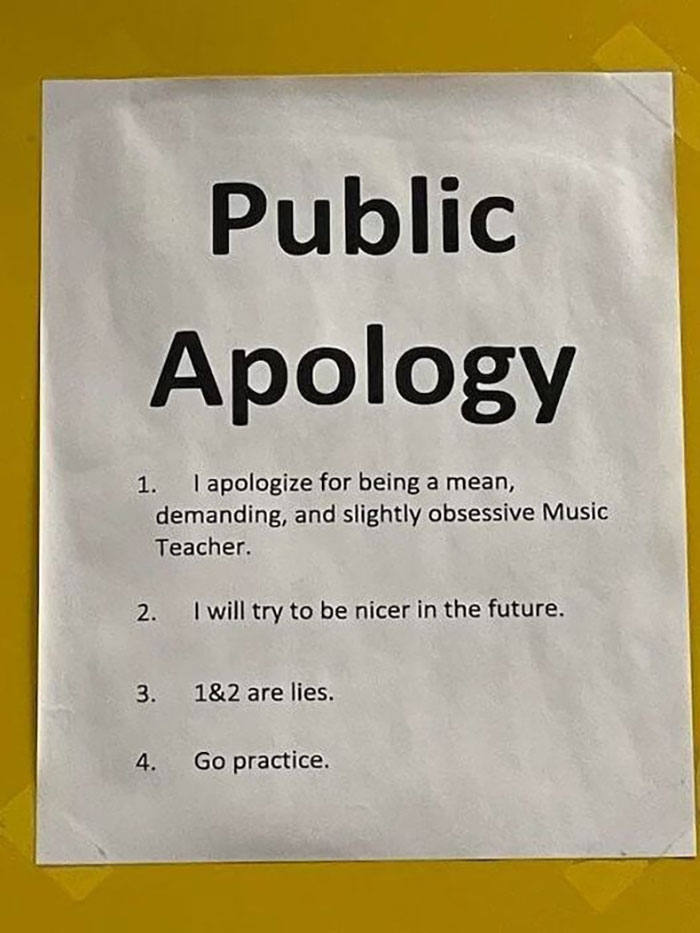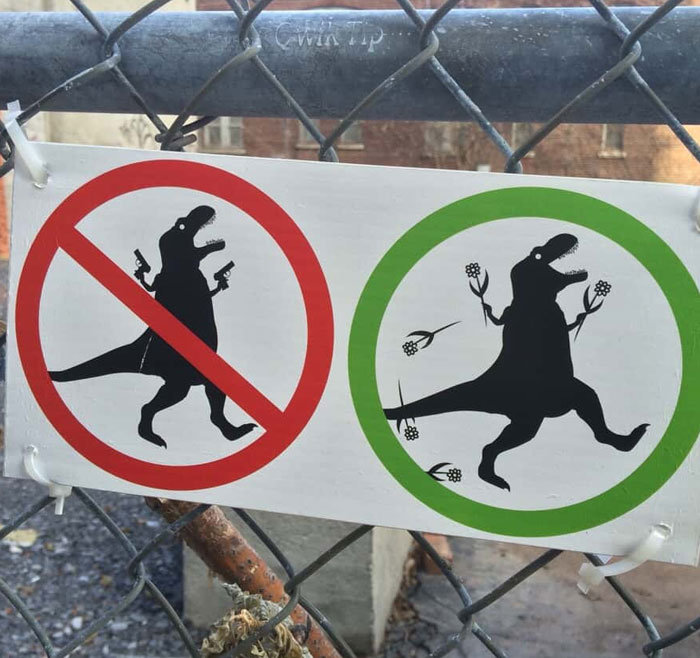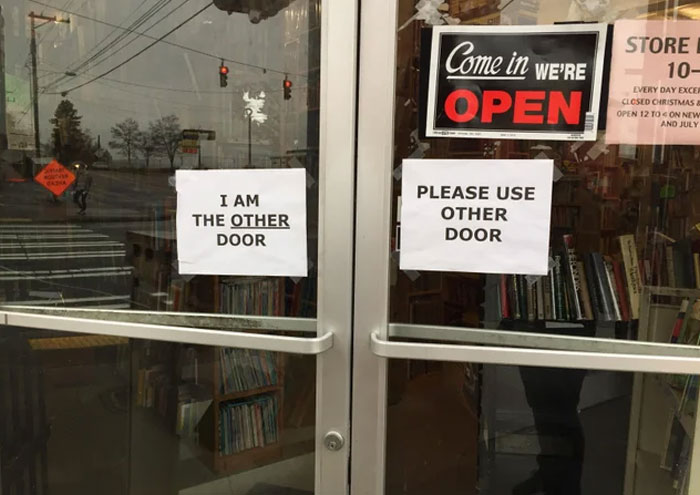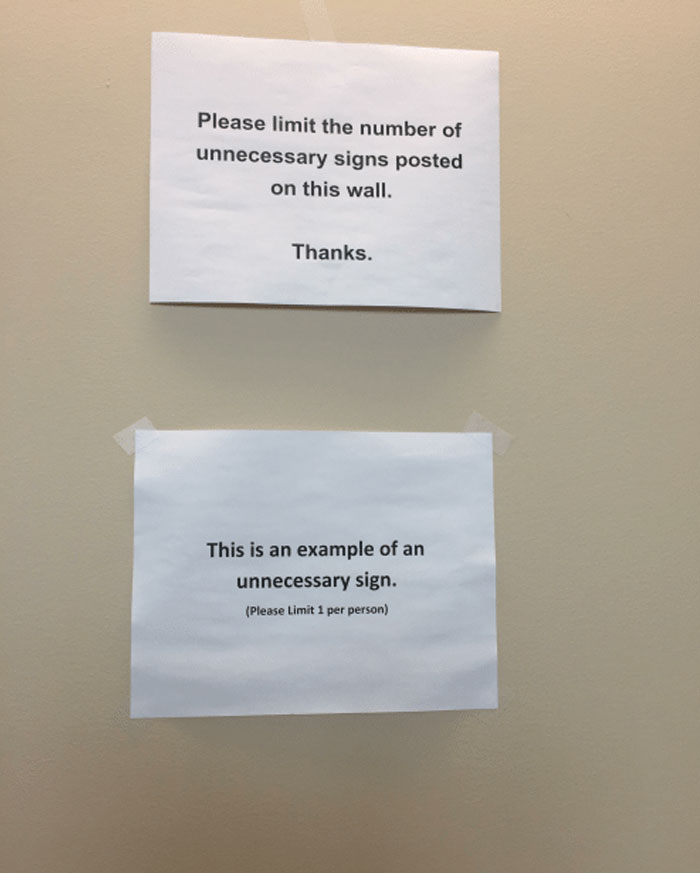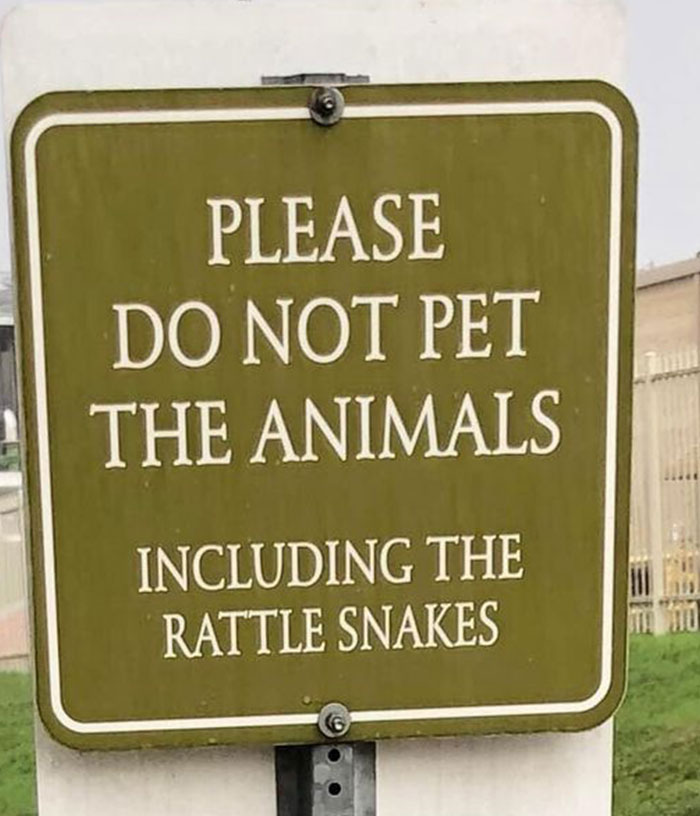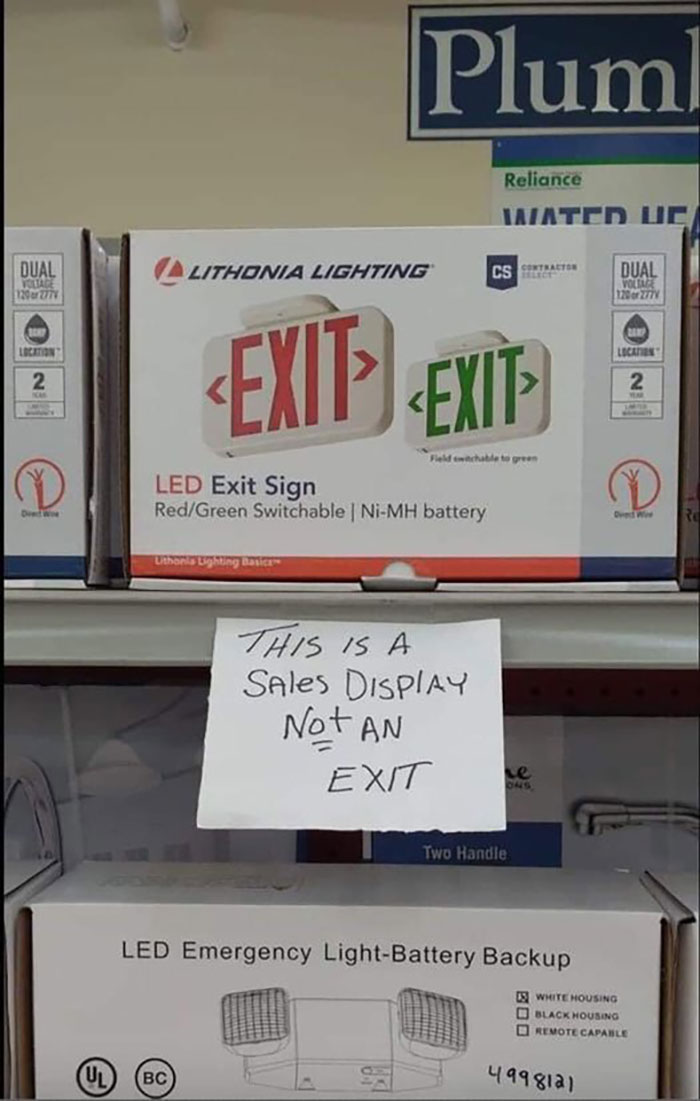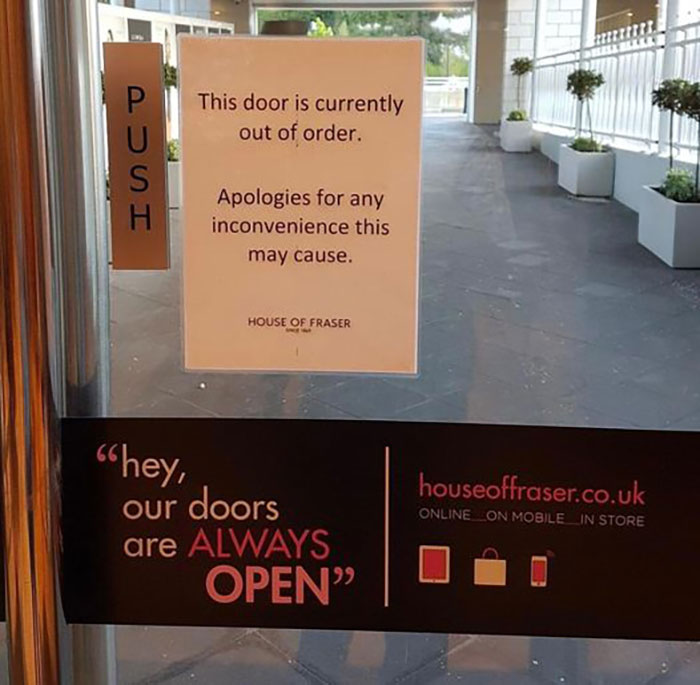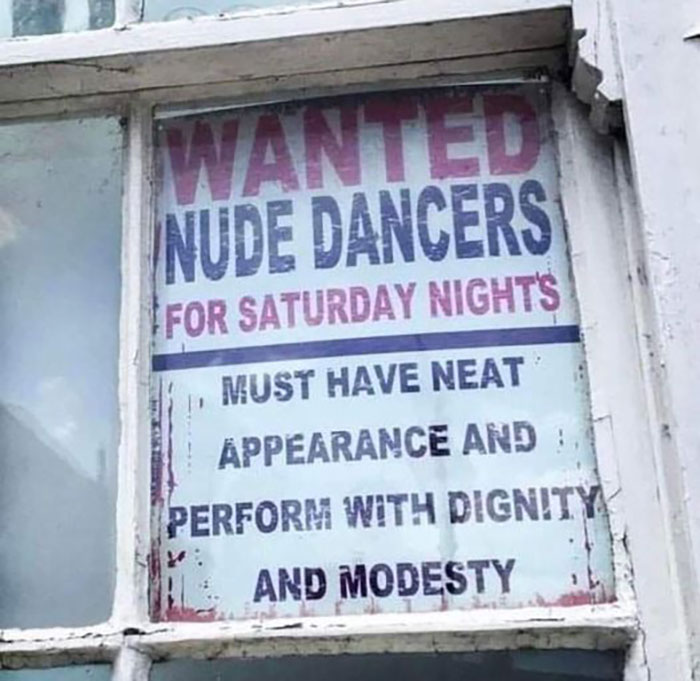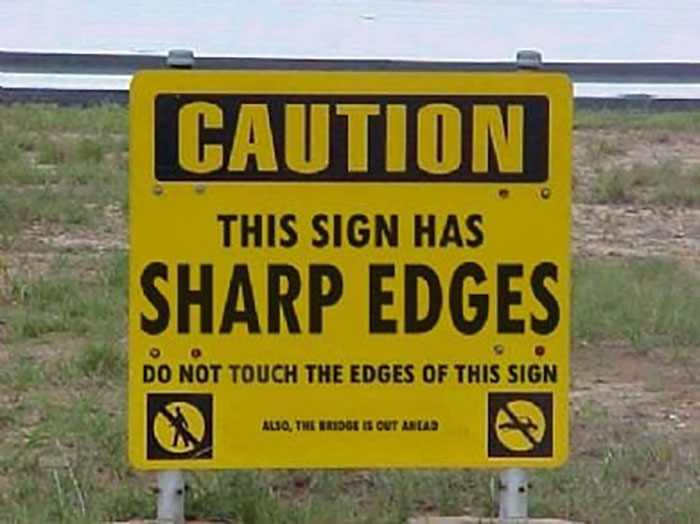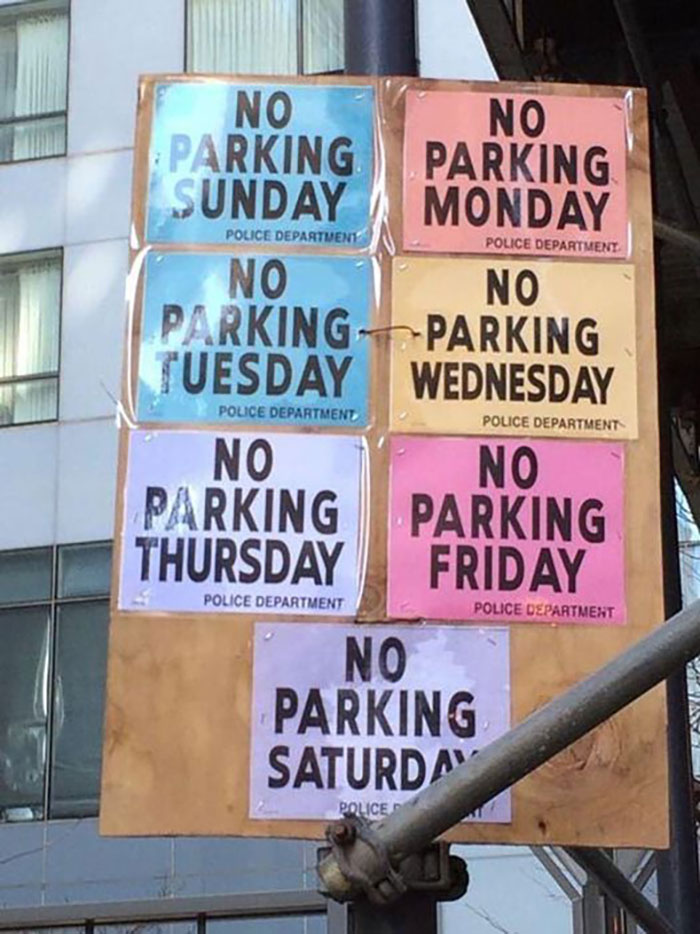
40 Times People Spotted Such Hilarious And Absurd Signs, They Had To Share Them On This Facebook Group
Finding humor in unexpected places is what makes life on Earth less of a drag. And the best part is that you can enjoy these surprises even if you were born under an unlucky star and don't come across that many yourself. All you have to do is go online; there are plenty of places where people share their entertaining everyday discoveries. Like the Facebook group 'Funny Signs.'
It was created all the way back in July 2011, and even though it hasn't gotten that big (the group has 4,300 members), this community continues to share content and live up to its name. So we rounded up some of its most popular posts and hope it's enough to put a smile on your face. It definitely was for us!
This post may include affiliate links.
To get a better understanding of some of these seemingly non-sensical signs, let's take a look at what science can tell us about absurdity.
Nathan A Heflick, Ph.D., is currently a senior lecturer in psychology at the University of Lincoln in the United Kingdom. To understand absurdity, he says, we must first know what's a schema.
"A schema refers to people's expectations," he wrote in Psychology Today. "So for instance, one's schema for a card deck is that hearts are red, and spades are black. If you were to play with a deck with the colors reversed, this would disrupt your schemas."
Cognitively, schemas are important because they enable us to process and use a ton of information in the world very quickly with minimal effort and fuss. "To put this in perspective, imagine going some place entirely new where you have no idea what to expect. The sheer effort exerted in trying to function without your usual schemas would be exhausting."
Science shows that we are motivated to maintain our existing schemas. For example, the meaning maintenance model by Steven Heine, Travis Proulx, and Kathleen Vohs, says that people's need for things to make sense (to be meaningful, and consistent with their schemas and expectations) is so strong that when it is disrupted, people act with increased efforts to restore their "meaning frameworks."
In one study Proulx and Heine exposed participants to a story written by Franz Kafka. The story starts out with a clear storyline (a doctor heading out to help with a child's toothache) and ends with a series of meaningless statements.
As Heflick pointed out, from the perspective of the meaning maintenance model, this should elicit an increased need to affirm and validate one's sources of meaning (one's schemas and expectations).
And in the study, this occurred through an increased ability to learn a new language. Specifically, participants were exposed to a list of digits and then were more likely to detect patterns in a made-up grammar system when they had just read the absurd, meaninglessness story by Kafka.
"Put differently, when people had their schema threatened by reading something that did not make sense, they responded with an increased capacity to learn," Heflick explained.
The psychologist said this research has several interesting implications. "For starters, schemas serve many useful functions. But, when schemas are broken, they increase learning. So, presumably, people need to overcome their natural tendency to protect their schemas to maximize their ability to learn."
In practical terms, this could suggest that when people isolate themselves from outside information to protect their schemas (such as only watching or reading things that verify their views), they hinder not only their ability to learn about other perspectives (through a lack of information) but also their ability to learn anything novel or different.
So when you think about it, the folks behind these signs are actually doing a public service. They're increasing everyone's desire and ability to learn. I know, it sounds like a stretch, but science says so!
Interestingly, Rebecca Schwarzlose, a cognitive neuroscientist researching brain and cognitive development at Washington University in Saint Louis, says missing the point is part of human nature.
"You perceive only a small fraction of the energy and information buzzing all around you," Schwarzlose wrote. "Much of that ... information goes unseen and unfelt because your body lacks the capacity to detect it. Whereas birds can see ultraviolet light, snakes can see infrared light, insects can see the polarization of light, mice can hear ultrasonic frequencies, and electric fishes can detect faint electric signals with their skin, you can do none of these things because your eyes, skin, and ears lack the cellular machinery that would allow you to detect them."
We need to quit warning stupid people about the consequences of their ignorance. Otherwise social Darwinism will never work. 😏
Schwarzlose said territory in our brain is much like Manhattan real estate. It's both finite and expensive.
"Brains evolve and develop to make the most of that modest terrain. Your brain maps are distorted to save energy and space. And these distortions, in turn, distort how you perceive your world," she said.
Consider your sense of sight for a second. You can see far more detail at your center of gaze, or where you are looking at any given moment, than out of the corner of your eye.
Maybe if I say I got neutered the nosy aunts won't ask when I'm having kids...
"Ideally, you would be able to see things equally well out of the corner of your eye as you do at your center of gaze. But you need more neurons, and more connections between those neurons, to represent fine details," Schwarzlose said.
"In order to see equally well in your visual periphery as you do at your center of gaze, the visual maps in your brain would have to be thirteen times larger. If this change sounds innocuous, think again. It would make your visual brain maps alone too large to fit inside your skull. And that would leave no room for the brain maps you rely upon to hear, feel, and move."
Can anyone explain why it would keep getting stolen (sorry, pretty dumb here)? Edit: Thanks everyone, I didn't get the joke. Kinda funny I guess.
To avoid such outcomes, brain maps devote most of their estate to representing detailed information from "sweet spots" for perception, at the expense of basically everything else.
"Oddly enough, your ability to perceive crucially depends on all that you don't perceive. Thanks to our limited senses and distorted brain maps, you can experience and interact with your world... and do it all with a brain that's smaller than a breadbox."
So maybe it's not a big deal that we don't get some of these signs after all?
I will willingly drink in any bar that uses dad jokes this wisely.
New business idea: a garage where the mechanics double as strippers. There's big money to be made, I'm tellin' ya!
One of my favourites from a Japan theme park tour back in 2009. Sound advice, really. SKJ-439-63...f378f5.jpg 
I am a strong believer in "live and let live." What on earth was the writer doing that gives the crazy neighbor the right to judge, let alone damaging another's property? This is not a good neighbor.
Sorry Jan but this is the wrong article. People will downvote you so I advice you to delete this comment before you might get banned.
Load More Replies...classic texas, stomping all over people's bodily autonomy & reproductive rights.
Load More Replies...One of my favourites from a Japan theme park tour back in 2009. Sound advice, really. SKJ-439-63...f378f5.jpg 
I am a strong believer in "live and let live." What on earth was the writer doing that gives the crazy neighbor the right to judge, let alone damaging another's property? This is not a good neighbor.
Sorry Jan but this is the wrong article. People will downvote you so I advice you to delete this comment before you might get banned.
Load More Replies...classic texas, stomping all over people's bodily autonomy & reproductive rights.
Load More Replies...
 Dark Mode
Dark Mode  No fees, cancel anytime
No fees, cancel anytime 


















